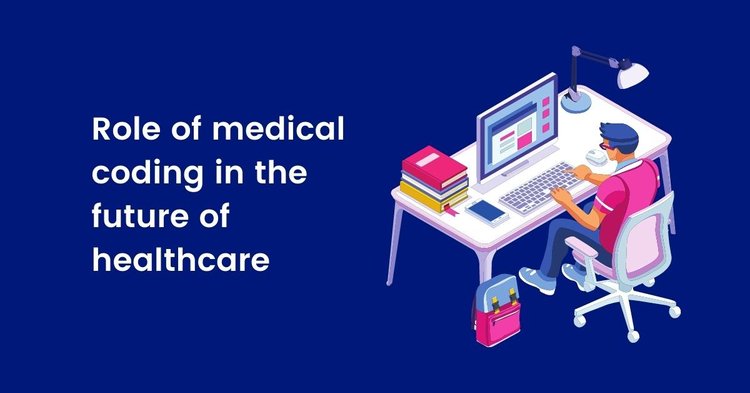The Next Generation Medical Coding Solutions
The world of healthcare is undergoing rapid transformation, and one area that is experiencing significant changes is medical coding. The next generation of medical coding solutions is poised to revolutionize the way healthcare data is processed, analyzed, and utilized. This essay delves into the key aspects of these innovative solutions and their potential impact on the healthcare industry.

1. Integration of Artificial Intelligence (AI)
AI is at the forefront of the next generation of medical coding solutions. Machine learning algorithms can analyze vast amounts of medical documentation, accurately assigning codes to procedures and diagnoses. This not only reduces human error but also speeds up the coding process.
2. Natural Language Processing (NLP)
NLP technology enables computers to understand and process human language. In the context of medical coding, NLP can extract crucial information from clinical notes, making the coding process more efficient and precise.
Benefits and Implications of Next Generation Coding Solutions
The advancement of medical coding solutions brings forth a myriad of benefits and implications for healthcare stakeholders.
1. Enhanced Accuracy and Efficiency
AI-powered coding solutions significantly enhance the accuracy of coding assignments. This accuracy translates to improved billing, reduced claim denials, and more precise medical data for research and analysis.
2. Workforce Evolution
The introduction of next generation coding solutions will reshape the role of medical coders. Instead of focusing solely on code assignments, coders will shift towards overseeing and refining AI-generated codes, allowing them to focus on complex cases and exceptions.
Challenges and Considerations
While the next generation of medical coding solutions promises transformative changes, it is not without challenges.
1. Data Privacy and Security
As medical coding becomes increasingly digitized, ensuring the security and privacy of patient data is paramount. Robust cybersecurity measures must be in place to safeguard sensitive healthcare information.
2. Integration with Existing Systems
Implementing new coding solutions within existing healthcare IT infrastructure can be complex. Ensuring seamless integration, minimal disruptions, and training for healthcare professionals are crucial considerations.
The Future Landscape of Healthcare
The next generation of medical coding solutions holds immense potential to reshape the healthcare landscape.
1. Real-time Analytics and Insights
The advanced capabilities of AI and data analytics will provide real-time insights into patient outcomes, disease patterns, and resource utilization, enabling informed decision-making.
2. Precision Medicine and Personalized Care
AI-driven coding solutions can support the implementation of precision medicine by accurately coding individualized treatment plans based on a patient’s unique genetic and medical profile.
The next generation of medical coding solutions is set to redefine the way healthcare operates. With AI, NLP, and data analytics at the forefront, these solutions promise enhanced accuracy, efficiency, and insights. While challenges exist, the benefits of these advancements far outweigh the drawbacks. As the healthcare industry continues to evolve, embracing and harnessing the potential of these coding solutions will be essential for improving patient care and driving innovation.
Implementation and Adoption Challenges of Next Generation Coding Solutions
While the next generation of medical coding solutions offers transformative potential, its successful implementation and adoption are not without challenges.

1. Resistance to Change
The healthcare industry is traditionally cautious when it comes to adopting new technologies. Resistance to change from healthcare professionals, administrators, and coders can slow down the integration of advanced coding solutions.
2. Training and Skill Upgradation
As coding solutions become more automated and AI-driven, there is a need for comprehensive training programs to equip medical coders with the skills required to oversee AI-generated codes effectively.
3. Cost Implications
Introducing next-generation coding solutions may involve substantial initial investment in technology and training. Healthcare institutions need to carefully evaluate the cost implications and long-term benefits before implementation.
4. Ethical Considerations
AI-driven coding solutions raise ethical questions, such as the potential impact on employment for medical coders and the need for human oversight to ensure unbiased and ethical code assignments.
Leveraging Data Analytics in Next Generation Medical Coding
One of the cornerstones of the next generation of medical coding solutions is the integration of data analytics for improved healthcare outcomes.
1. Predictive Analysis
Data analytics can help identify trends, patterns, and potential complications early, allowing healthcare providers to proactively address issues and improve patient care.
2. Resource Allocation
By analyzing coding data, healthcare administrators can make informed decisions about resource allocation, optimizing staffing, equipment, and facility utilization.
3. Research and Innovation
The abundance of data generated by next-generation coding solutions can fuel medical research, contributing to the discovery of new treatments, therapies, and medical breakthroughs.
Collaboration and Future Outlook
The successful evolution of medical coding practices requires collaboration between various stakeholders.
1. Healthcare Organizations and Tech Developers
Collaboration between healthcare organizations and technology developers is essential to ensure that coding solutions align with the needs of healthcare providers and are user-friendly.
2. Continuous Learning and Adaptation
As the landscape of medical coding evolves, continuous learning and adaptation will be crucial for coders, healthcare professionals, and administrators to stay updated with the latest advancements.
3. Patient-Centric Approach
The ultimate goal of next-generation coding solutions should be to enhance patient care. Keeping the patient at the center of coding practices ensures that accurate, timely, and detailed information contributes to their well-being.
In conclusion, the next generation of medical coding solutions holds immense promise for revolutionizing healthcare data processing, analysis, and utilization. While challenges such as resistance to change, training, and ethical considerations exist, the benefits, including enhanced accuracy, efficiency, and insights, far outweigh these challenges. Collaboration, ongoing learning, and a patient-centric approach will be key to realizing the full potential of these coding solutions in shaping the future of healthcare. As the healthcare landscape continues to evolve, embracing and effectively utilizing these innovative coding practices will play a pivotal role in improving patient outcomes and advancing medical research.
